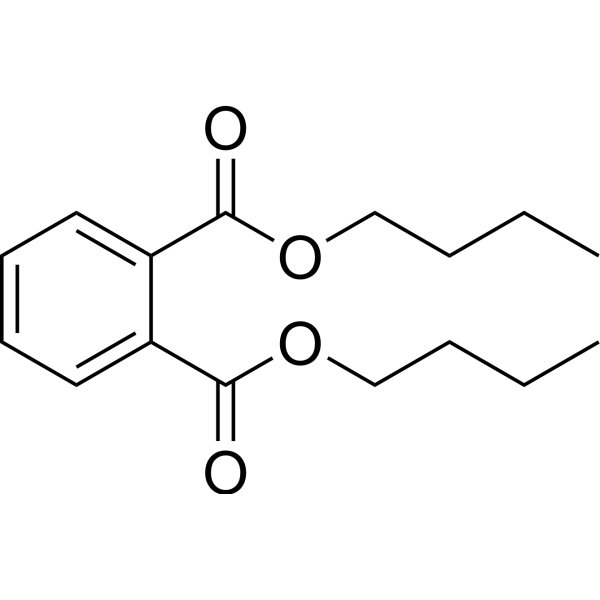Home
Products
1,2-Benzenedicarboxylic acid



| Product Name | 1,2-Benzenedicarboxylic acid |
| Price: | Inquiry |
| Catalog No.: | CN03906 |
| CAS No.: | 84-74-2 |
| Molecular Formula: | C16H22O4 |
| Molecular Weight: | 278.4 g/mol |
| Purity: | >=98% |
| Type of Compound: | Phenols |
| Physical Desc.: | Oil |
| Source: | The herbs of Salvia yunnanensis |
| Solvent: | Chloroform, Dichloromethane, Ethyl Acetate, DMSO, Acetone, etc. |
| SMILES: |
| Contact us | |
|---|---|
| First Name: | |
| Last Name: | |
| E-mail: | |
| Question: | |
| Description | Dibutyl phthalate is a commonly used plasticizer commonly found in some food packaging materials, personal care products, and the coating of oral medications[1]. May cause toxicity and adverse neurobehavioral effects[2][3]. |
| In Vitro | Dibutyl phthalate (0.001 µg/mL-1000 µg/mL) is detrimental to follicle growth and viability and results in significant dysregulation of cell cycle and apoptosis gene expression in a dose-specific manner. But MBP does not play a role in Dibutyl phthalate toxicity in follicles exposed in vitro[1]. |
| In Vivo | Dibutyl phthalate (200, 400, or 600 mg/kg/day) induces decrease mice weight, impairment of spermatogenesis, reduces serum follicle stimulating hormone and testosterone level, alters testicular LDH, increases LPO, and decreases the levels of enzymatic antioxidants with histopathological anomalies[2]. Dibutyl phthalate (6.25, 12.5, 25, 50, 100 and 200 mg/kg) could cause some neurobehavioral adverse effects in mice[3]. |
| Density | 1.1±0.1 g/cm3 |
| Boiling Point | 337.0±10.0 °C at 760 mmHg |
| Flash Point | 171.1±0.0 °C |
| Exact Mass | 278.151794 |
| PSA | 52.60000 |
| LogP | 4.82 |
| Vapour Pressure | 0.0±0.7 mmHg at 25°C |